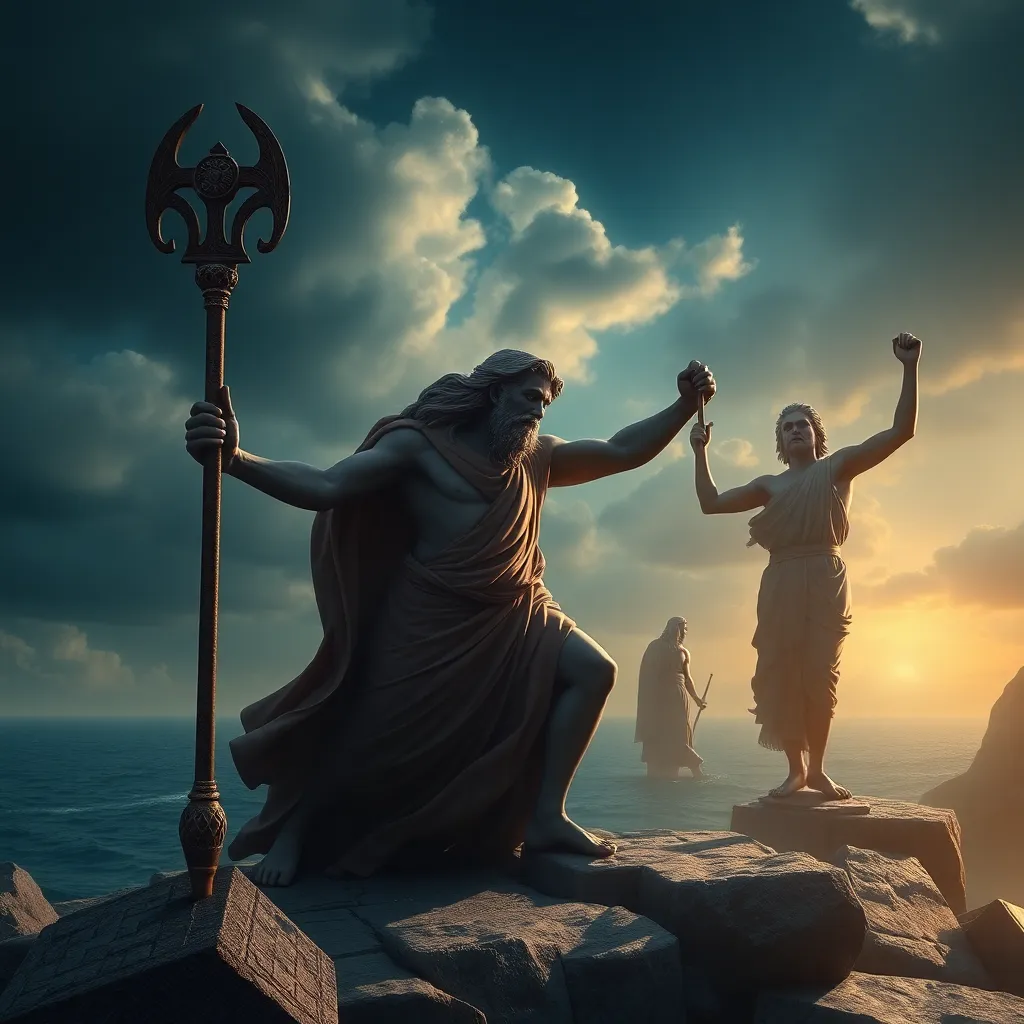The Role of Prophecy in The Odyssey: Foretelling the Future
I. Introduction
“The Odyssey,” attributed to the ancient Greek poet Homer, is one of the most significant works in Western literature. This epic poem narrates the long and arduous journey of the hero Odysseus as he strives to return home to Ithaca after the Trojan War. Throughout his voyage, Odysseus encounters various challenges and divine interventions that shape his fate.
One of the most compelling themes within “The Odyssey” is prophecy, a recurring motif that plays a pivotal role in guiding the characters’ actions and foreshadowing future events. Prophecies often serve as a compass for the characters, providing insight into their destinies and the choices they must make.
This article argues that prophecy serves as a crucial narrative device in “The Odyssey,” guiding characters’ actions and foreshadowing events, thereby enriching the epic’s complexity and depth.
II. Understanding Prophecy in Ancient Greek Culture
In ancient Greek culture, prophecy was a significant aspect of religious and social life. It can be defined as a message or revelation from the divine, often conveyed by oracles or seers. This communication was believed to provide insights into the future and guidance for decision-making.
The importance of prophecy in Greek mythology is evident in various stories and myths where characters seek out oracles for guidance. Key elements include:
- Oracles: Sacred sites, such as Delphi, where individuals could receive divine messages.
- Seers: Individuals gifted with the ability to interpret divine signs and predict future events.
- Fate vs. Free Will: The tension between predestined outcomes and individual choices, often complicated by prophetic messages.
III. Key Prophecies in The Odyssey
Within “The Odyssey,” several significant prophetic moments shape the narrative and influence character development. Notable examples include:
1. Teiresias’s Prophecy to Odysseus
When Odysseus journeys to the Underworld, he encounters the blind prophet Teiresias, who reveals crucial information about his journey home. Teiresias warns Odysseus about the dangers he will face and provides guidance on how to appease Poseidon, whose wrath has delayed his return.
2. Circe’s Warnings and Insights
Circe, the enchantress, also offers prophetic insights to Odysseus. She warns him about the Sirens and the challenges he will encounter on his journey. Her advice emphasizes the importance of heeding prophetic warnings to ensure survival.
These prophetic moments are significant not only for their content but also for how they contribute to the development of Odysseus as a character, showcasing his growth and adaptability in the face of challenges.
IV. The Impact of Prophecy on Odysseus’s Journey
Prophecy profoundly influences Odysseus’s decisions and leadership throughout “The Odyssey.” Key points include:
- Decisions Influenced by Prophecy: Odysseus often finds himself weighing his choices against the backdrop of prophetic messages. For instance, his decision to confront the Cyclops is fraught with the potential consequences foreseen by Teiresias.
- Tension Between Prophecy and Actions: The relationship between prophecy and Odysseus’s actions creates tension, as he navigates between predetermined fate and his own agency.
- Interpretation of Prophecies: Odysseus demonstrates an ability to interpret and respond to prophecies, showcasing his cleverness and adaptability.
V. Prophecy and the Theme of Fate vs. Free Will
“The Odyssey” explores the intricate relationship between fate and free will, particularly through the lens of prophecy. Key aspects include:
- Fate Shaped by Prophecy: Prophecies often set the stage for the characters’ fates, suggesting that certain outcomes are inevitable.
- Characters’ Responses: Some characters, like Odysseus, act in accordance with prophetic guidance, while others may resist or reinterpret these messages, leading to different outcomes.
- Implications for Understanding Destiny: The interplay between prophecy and actions invites readers to reflect on the nature of destiny and individual agency within the narrative.
VI. Prophecies Surrounding Other Characters
Prophecy extends beyond Odysseus, influencing the lives of other key characters such as Penelope and Telemachus. Notable points include:
- Penelope’s Insight: Penelope, through her own understanding of prophetic messages, remains hopeful and resourceful as she awaits Odysseus’s return.
- Telemachus’s Journey: Telemachus embarks on a journey to seek news of his father, motivated by a prophecy that suggests he must step into his own identity as a leader.
- Interconnectedness of Characters: Prophecies create bonds between characters, intertwining their fates and actions.
VII. The Symbolism of Prophecy in The Odyssey
In “The Odyssey,” prophecy carries metaphorical significance that resonates with human experience. Key themes include:
- Metaphorical Significance: Prophecies symbolize the uncertainties of life and the human desire to understand and control the future.
- Reflection of Human Experience: Characters’ interactions with prophecy portray the struggles of navigating fate, free will, and their consequences.
- Broader Literary Implications: The themes of prophecy in “The Odyssey” reflect broader questions of destiny, morality, and the human condition found in literature.
VIII. Conclusion
In conclusion, prophecy plays a significant role in “The Odyssey,” serving as a guiding force for characters and a foreshadowing mechanism for events. Through the lens of prophecy, readers gain insight into the complexities of fate and free will, as well as character development.
Ultimately, the prophetic elements enrich the narrative, allowing for a deeper understanding of the characters’ journeys. The enduring relevance of prophecy in storytelling reflects humanity’s ongoing quest to comprehend the interplay between destiny and choice, making “The Odyssey” a timeless exploration of the human experience.




